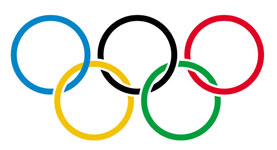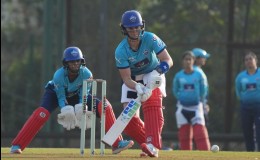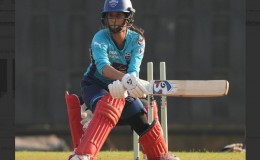 The protection of clean athletes and the fight against doping are top priorities for the International Olympic Committee (IOC), as outlined in Olympic Agenda 2020, the IOC’s strategic roadmap for the future of the Olympic Movement. To provide a level playing field for all clean athletes at the Olympic Games Rio 2016, the IOC put special measures in place, including targeted pre-tests and the re-analysis of stored samples from the Olympic Games Beijing 2008 and London 2012, following an intelligence-gathering process that started in August 2015.
The protection of clean athletes and the fight against doping are top priorities for the International Olympic Committee (IOC), as outlined in Olympic Agenda 2020, the IOC’s strategic roadmap for the future of the Olympic Movement. To provide a level playing field for all clean athletes at the Olympic Games Rio 2016, the IOC put special measures in place, including targeted pre-tests and the re-analysis of stored samples from the Olympic Games Beijing 2008 and London 2012, following an intelligence-gathering process that started in August 2015.
As part of this process, the IOC today announced that Tatyana Lysenko has been disqualified from the Olympic Games London 2012. The details follow.
Tatyana LYSENKO, 33, of the Russian Federation, competing in the women’s hammer throw event (qualification and final), has been disqualified from the Olympic Games London 2012, in which she ranked first and was awarded the gold medal. Re-analysis of Lysenko’s samples from London 2012 resulted in a positive test for the prohibited substance dehydrochlormethyltestosterone (turinabol).
The IOC Disciplinary Commission, composed for this case of Denis Oswald (Chairman), Juan Antonio Samaranch and Ugur Erdener, decided the following:
The Athlete, Tatyana Lysenko:
is found to have committed an anti-doping rule violation pursuant to the IOC Anti-Doping Rules applicable to the Games of the XXX Olympiad in London in 2012 (presence, and/or use, of a Prohibited Substance or its Metabolites or Markers in an athlete’s bodily specimen),
is disqualified from the event in which she participated upon the occasion of the Olympic Games London 2012, namely the women’s hammer throw event, in which she ranked first and for which she was awarded the gold medal.
has the medal, the medallist pin and the diploma obtained in the Women hammer throw event withdrawn and is ordered to return these.
The IAAF is requested to modify the results of the above-mentioned event accordingly and to consider any further action within its own competence.
The Russian Olympic Committee shall ensure full implementation of this decision.
The Russian Olympic Committee shall in particular secure the return to the IOC, as soon as possible, of the medal, the medallist pin and the diploma awarded in connection with the women’s hammer throw event to the Athlete.
This decision enters into force immediately.
The additional analyses of samples collected during the Olympic Games Beijing 2008 and London 2012 were performed with improved analytical methods, in order to possibly detect prohibited substances that could not be identified by the analysis performed at the time of these editions of the Olympic Games.










